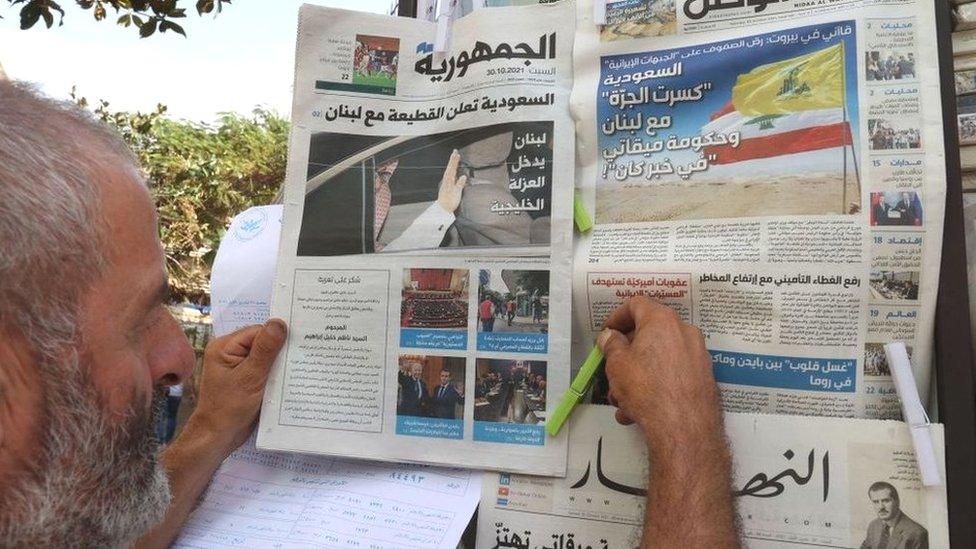Lebanon media guide
- Published
This page is no longer being updated. It was last updated on 4 October 2024

Lebanon' media landscape is dominated by non-state outlets, including those affiliated with political groups and targeting sectarian communities.
TV is the most popular medium, with domestic channels more important news sources than pan-Arab ones.
Beirut is an important base for TV channels operated by, or supportive of, Iran. The state is a major player in the telecoms sector.
Lebanon was the first Arab country to permit private radio and TV and has become a regional media hub. News websites across the political spectrum are a key information source.
Reporters Without Borders (RSF) says "genuine freedom of expression" exists but political parties have a "stranglehold" and journalism is "a full-fledged weapon in the political conflict".
The financial crisis and the effects of the 2020 Beirut port explosion have forced media outlets to cut their staffing and budgets. The Daily Star, Lebanon's only English-language paper, closed in 2021.
Almost all TVs and radios are privately-owned and many are affiliated with political groups. Al-Manar TV is operated by militant group Hezbollah. Take-up of satellite and cable is widespread.
Lebanese TVs are known for hosting some of the most daring cultural and social talks shows in the Middle East. There are dozens of private radio stations. BBC Arabic and Radio France Internationale are carried by partner stations.
There is no large-scale filtering of online content. However, Freedom House said in 2021 that "the state has started to block more content, often failing to provide transparency about its decisions."
There were 5.6 million internet users by July 2022, comprising 84% of the population (Internetworldstats.com) and around 5 million active social media users (We Are Social/Hootsuite, 2022).
There was a 10% jump between 2022 and 2024 in the number of users accessing social media.
Press
An-Nahar, external - (The Day) daily
Nidaa al-Watan, external - (Call of the Nation) daily
Al-Akhbar, external - (The News) daily
L'Orient-Le Jour, external - in French
Addiyar, external - (The Homeland) daily
Al Joumhouria, external - Arabic-language daily
Television
Lebanese Broadcasting Corporation International (LBCi), external - commercial, market leader and pan-regional broadcaster
Al-Mayadeen, external - commercial
Al-Jadeed, external - commercial
Murr TV (MTV), external - commercial
Tele-Liban, external - state-run
Al-Manar, external - (The Beacon), pro-Hezbollah
OTV, external - affiliated to the Free Patriotic Movement (FPM)
Radio
Voice of Lebanon, external - commercial
Sawt al-Ghad, external - (Voice of Tomorrow), commercial
Radio Orient, external - commercial
Radio Liban, external - state-run
News agency/internet
Lebanese National News Agency, external - state-run, pages in English
Naharnet, external - news website, pages in English
Ya Libnan, external - news site, in English
Lebanon 24, external - news site, in Arabic